Tutorials, Examples, Educator News and more!
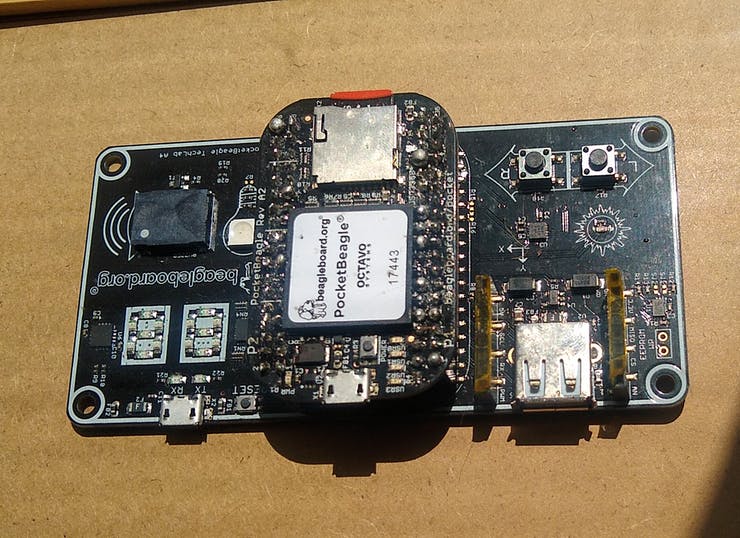
PocketBeagle® TechLab Cape Tutorials
Get started today with programming and Linux. PocketBeagle® TechLab Cape was designed from lessons-learned in teaching hundreds of individuals getting their first introduction to programming, Linux, and ultimately hacking the kernel itself.
The learning materials introduced are based in Python and Rust programming languages and utilize common embedded interfaces, including SPI, I2C, PWM, ADC and GPIO. Linux kernel drivers are utilized to demonstrate the most efficient and stable approach to building a system. The entry point is for the novice, but this quickly prepares you to learn deeper topics around pinmux configuration, kernel module development, kernel configuration using device trees and more.
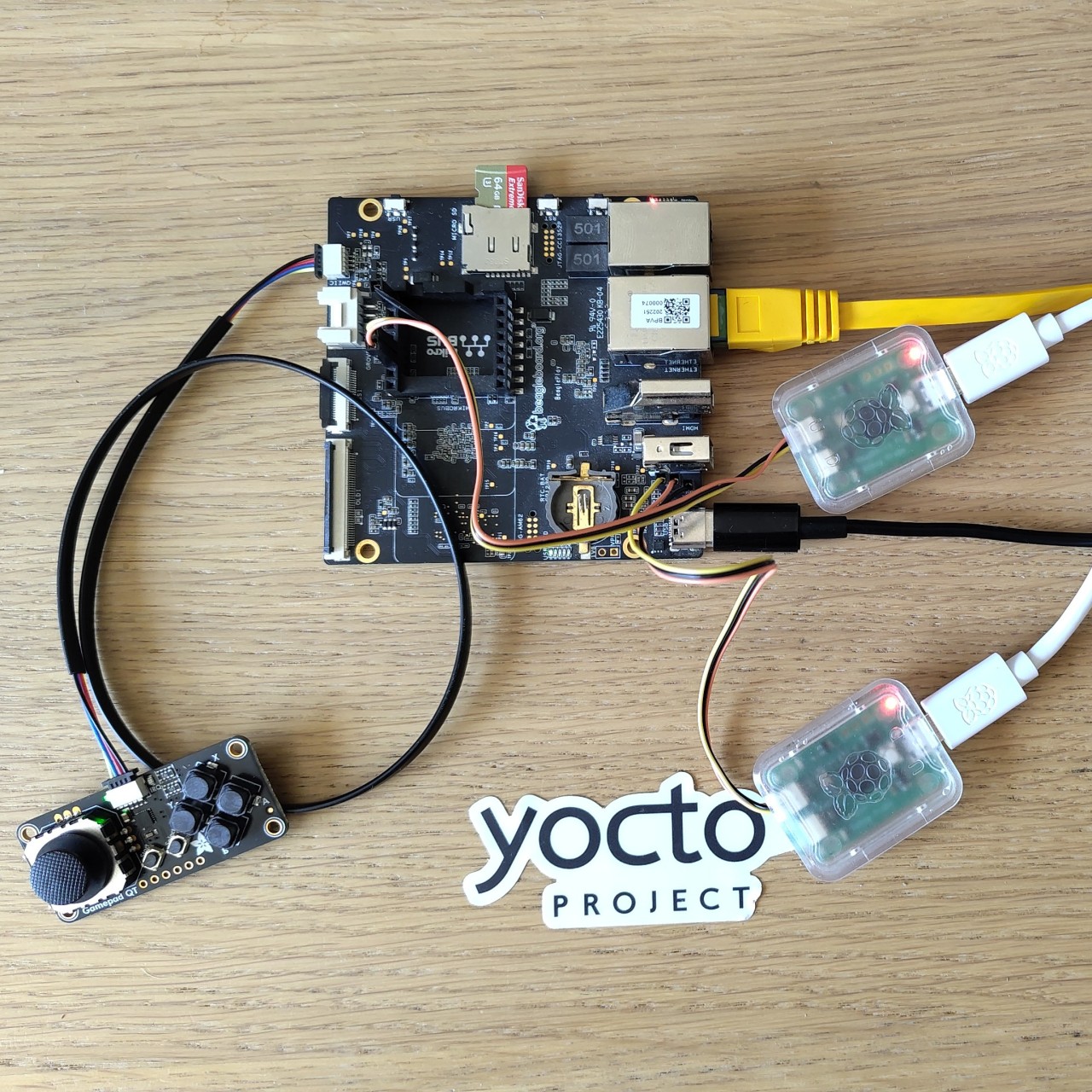
Root Commit Yocto Project Training on BeaglePlay
Through the 4 days course and 21 labs (at least 75% of the time dedicated to practical labs!), get a solid, varied and fun first experience with Yocto Project and OpenEmbedded.
Root Commit’s Yocto training lectures and labs are available under a Creative Commons BY-SA license, and are also meant to be used by people learning by themselves. This is a nice match with BeagleBoard.org’s educational goals!
Root Commit offers other courses on BeaglePlay:
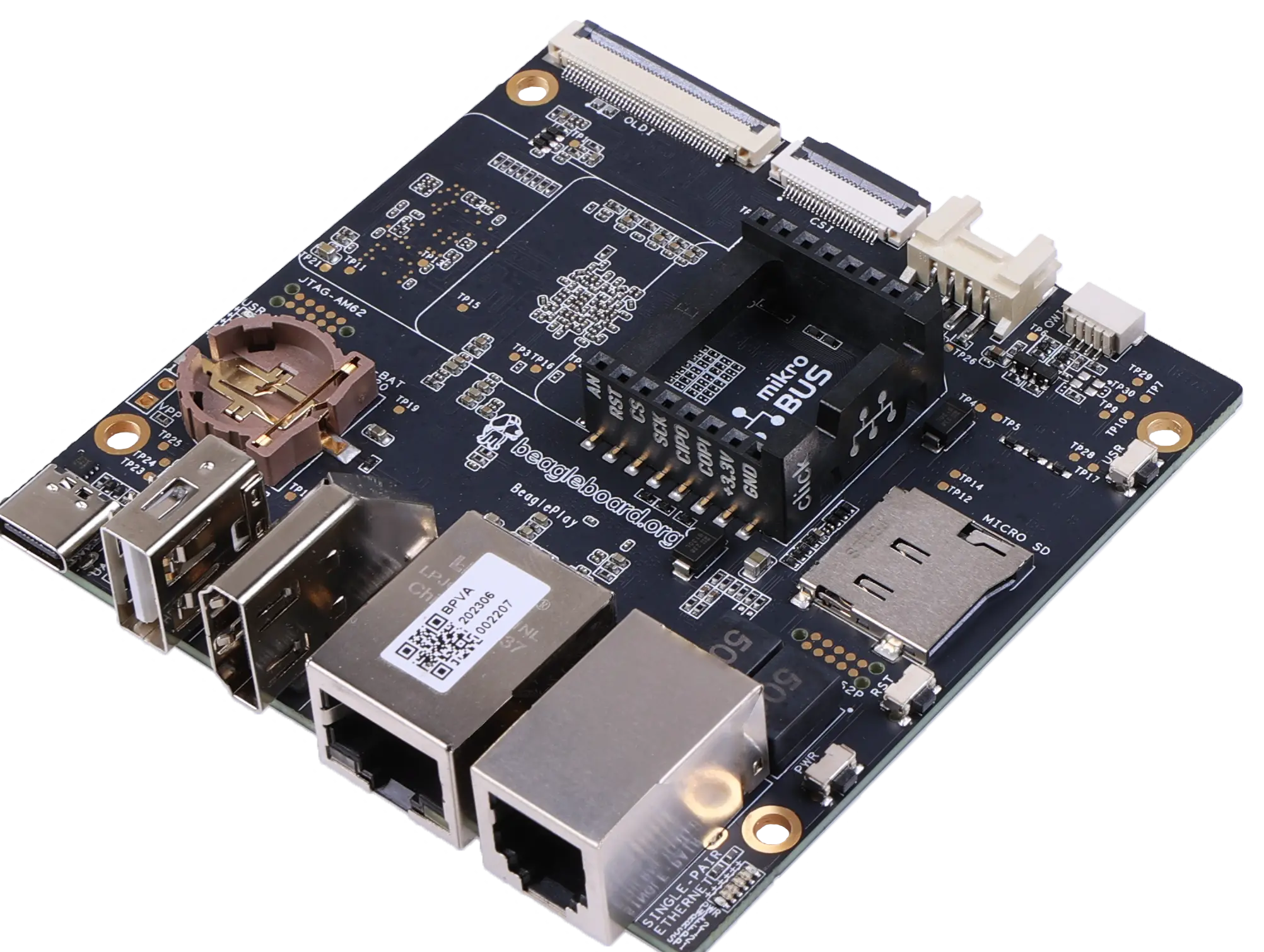
Bootlin Embedded Linux Training on BeaglePlay
Objectives
- Be able to understand the overall architecture of Embedded Linux systems.
- Be able to choose, build, setup and use a cross-compilation toolchain.
- Be able to understand the booting sequence of an embedded Linux system, and to set up and use the U-Boot bootloader.
- Be able to select a Linux kernel version, to configure, build and install the Linux kernel on an embedded system.
- Be able to create from scratch a Linux root filesystem, including all its elements: directories, applications, configuration files, libraries.
- Be able to choose and setup the main Linux filesystems for block storage devices, and understand their main characteristics.
- Be able to select, cross-compile and integrate open-source software components (libraries, applications) in an Embedded Linux system.
- Be able to understand the main open-source licenses.
- Be able to setup and use an embedded Linux build system, to build a complete system for an embedded platform.
- Be able to develop and debug applications on an embedded Linux system.
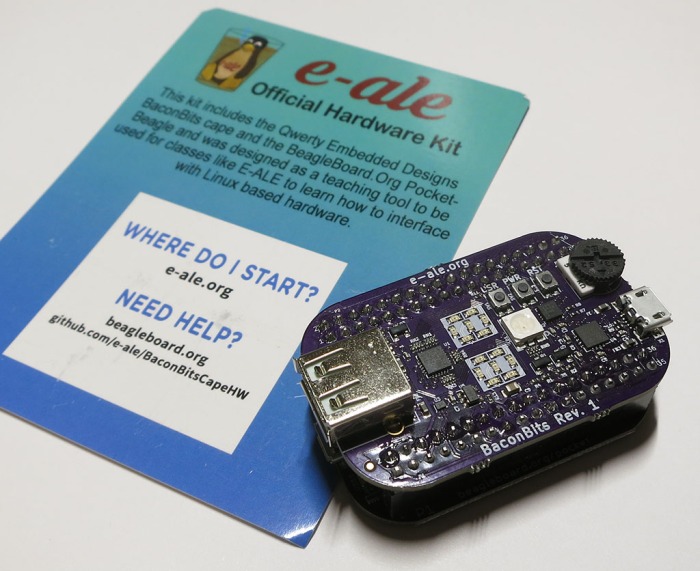
Embedded Apprentice Linux Engineer (e-ALE) Training
Embedded Apprentice Linux Engineer (E-ALE) is nominally a series of 8-9 seminars over 2-3 days at existing Embedded Linux conferences. Take as many or few as you like. The seminars will each represent a key topic relevant to Engineers new to Embedded Linux.
Each seminar starts with a 45 min lecture or presentation on one subject, followed by 1 hour of lab time to practice the relevant learned skills. Taught by a professional Embedded Linux Instructor with years of practical experience, the sessions utilize a PocketBeagle® with BaconBits board, offering exercises with real Embedded hardware.
Schedule and Registration are available here
Pre-requisites recommended:
You are comfortable using a command line interface
You can program and know C
You have some level of Linux userspace experience
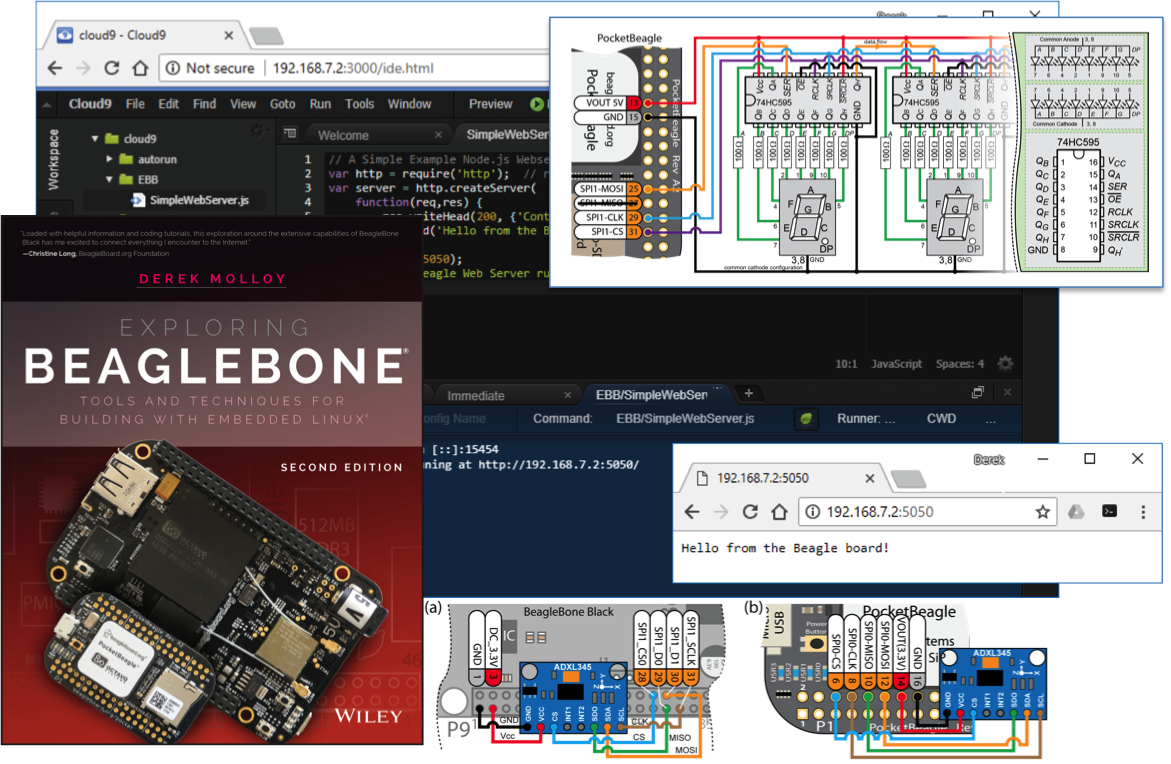
Teaching Electronics and Programming with Embedded Linux – Derek Molloy
With two textbooks, a companion website with example code, and a YouTube channel dedicated to examples used in university courses with BeagleBone®, Professor Derek Molloy shares great expertise for teaching Electronics with BeagleBone®, BeagleBone® Black, BeagleBone® Wireless and PocketBeagle®.
Exploring BeagleBone Tools and Techniques for Building with Embedded Linux – Now in it’s second edition, the textbook covers getting started information and basic materials all the way to examples such as building wireless sensor networks, Internet of Things (IoT) full-stack frameworks with emphasis on MQTT and interfacing to AdaFruit IO. There is new work on real-time interfacing and a lot more.
BeagleBone Video Series with Tutorial and Labs: Originally developed to support a flipped model course on digital and analog electronics, the series features 16 full length video lectures with hands on labs. With over a million views, the materials are excellent for course preparation, augmentation or self learning.
Topics include:
Adding USB Wi-Fi and Building a Linux Kernel
Driving Stepper Motors
LCD Touchscreen GUI Applications
Introduction to GPIO and Device Tree Overlays
Introduction to Professor Derek Molloy blog
Professor Derek Molloy BeagleBone Website
